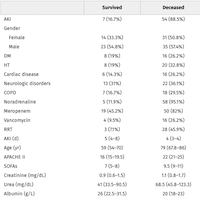Early evaluation of heart rate variability can predict the outcome of patients in the ICU
nature.com
The study evaluated the use of heart rate variability (HRV) to predict the outcome of patients in the ICU. HRV is a way to evaluate the cardiac effects of the autonomic nervous system, and a relation between HRV and outcome has been proposed in various types of patients. A lower LF/HF, SD2/SD1 ratios, and Shannon entropy values on admission were associated with higher ICU mortality.
HRV parameters were independent and correlated with mortality in the multivariate analysis. Machine learning using neural network (kNN) enabled to determine a simple decision tree combining the three best determinants (SDNN, Shannon Entropy, SD2/SD1 ratio) of a composite outcome index.
The study recorded plethysmogram tracings (PPG) for a 2-hour period during the 24 hours following ICU admission. Physiological data recording was associated with metadata collection. The study found that the SpO2/FiO2 ratio and HRV parameters (LF/HF and Shannon entropy) were independent and correlated with mortality in the multivariate analysis.
The study concluded that HRV measured on admission enables the prediction of the outcome in the ICU or at Day-28, regardless of the admission diagnosis, treatment, and mechanical ventilation requirement.
















